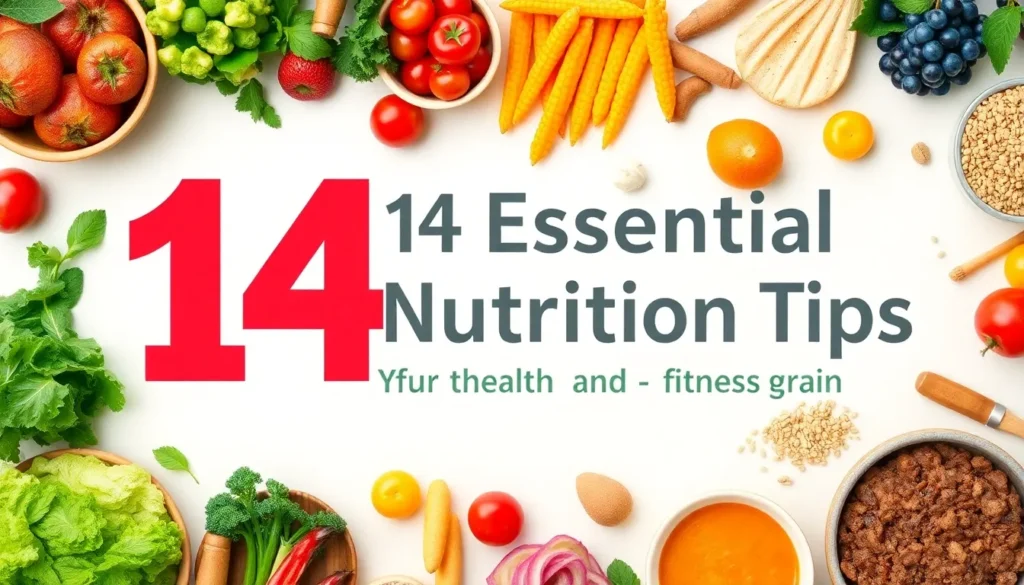Embarking on a health and fitness journey is both exciting and challenging.
With the right nutrition, you can fuel your body, enhance your workouts, and achieve your goals more effectively.
This listicle presents 14 essential nutrition tips that will transform your approach to healthy eating.
Whether you’re a beginner or a seasoned fitness enthusiast, these tips will help you navigate the world of diet and nutrition with confidence.
1. Understand Your Macros
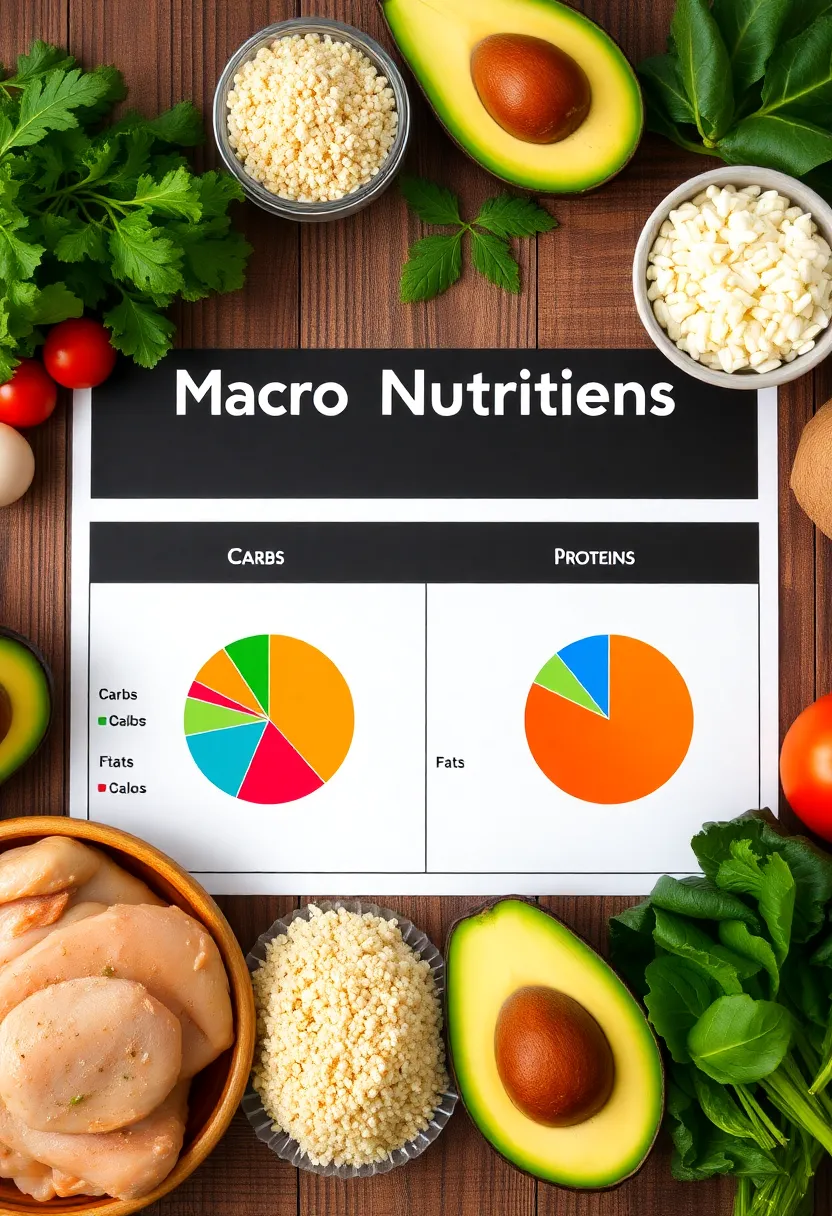
Understanding macronutrients—carbohydrates, proteins, and fats—is crucial for anyone serious about their health and fitness.
Each macro plays a specific role in your body: carbs provide energy, proteins build and repair tissues, and fats support cell function.
By tracking your macronutrient intake, you can tailor your diet to your personal fitness goals, whether it’s muscle gain, weight loss, or maintenance.
Consider using a macro calculator to find your ideal breakdown, and don’t forget to adjust as your fitness journey progresses.
2. Hydration is Key

Staying hydrated is often overlooked but is vital for optimal health and fitness performance.
Water aids digestion, regulates body temperature, and keeps joints lubricated.
Aim to drink at least 8-10 glasses of water a day, and even more if you’re active.
To make hydration more appealing, infuse your water with fruits like lemon, cucumber, or berries for a refreshing twist.
3. Prioritize Whole Foods

Focusing on whole foods is one of the best ways to improve your nutrition.
These foods are minimally processed and packed with nutrients, helping you feel full and satisfied.
Incorporate a rainbow of fruits and vegetables, whole grains, lean proteins, and healthy fats into your meals.
Avoid processed foods high in sugar and unhealthy fats, which can undermine your health and fitness goals.
4. Meal Prep for Success
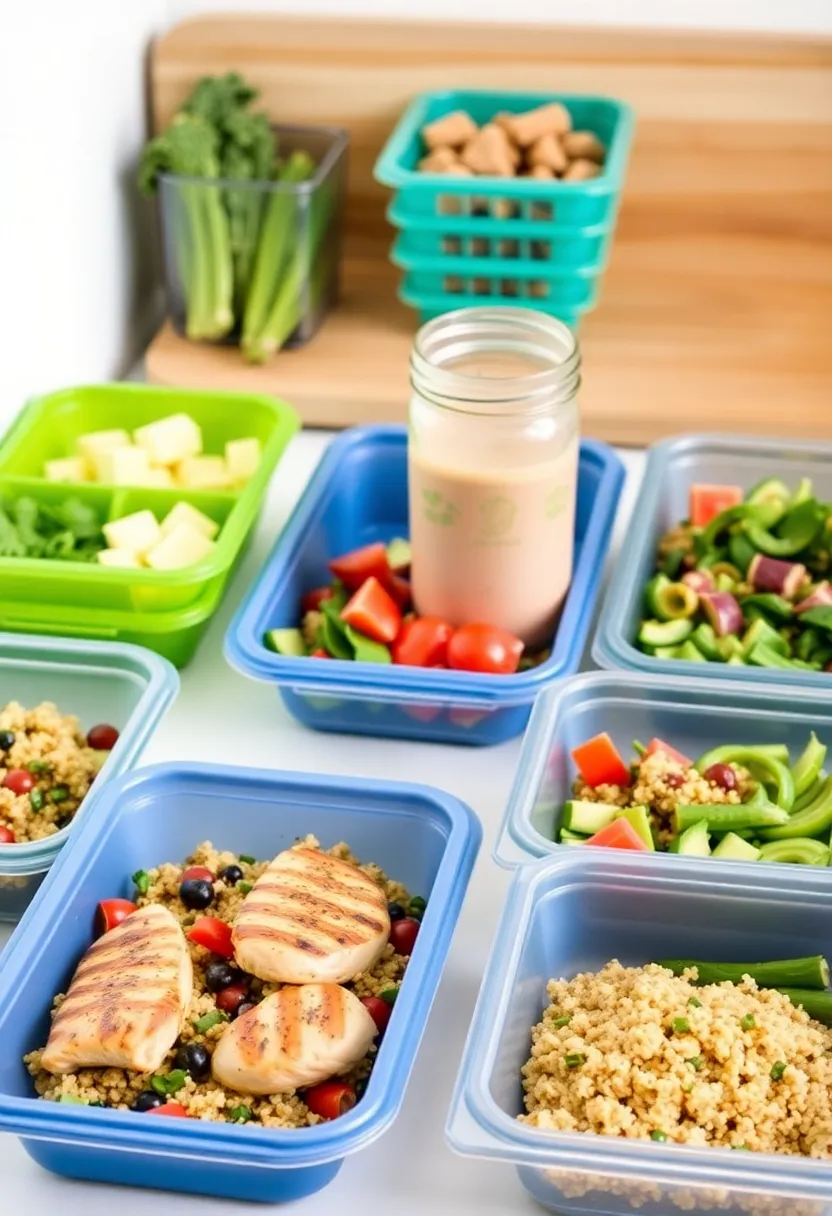
Meal prepping can save you time and ensure you have healthy options readily available, reducing the temptation to stray from your diet.
Plan your meals for the week, portion them out into containers, and store them in the fridge or freezer.
This practice not only helps you stay organized but also can save you money by reducing food waste.
Incorporate a variety of proteins, grains, and veggies to keep things interesting.
5. Listen to Your Body

Being in tune with your body’s hunger and fullness cues is essential for a healthy relationship with food.
Instead of following strict diets, practice mindful eating by slowing down and savoring each bite.
Pay attention to how different foods make you feel, and adjust your diet accordingly.
This approach can help you identify your body’s needs and prevent overeating.
6. Don’t Skip Breakfast

Breakfast is often touted as the most important meal of the day for good reason.
A nutritious breakfast jump-starts your metabolism, provides essential nutrients, and sets the tone for healthier eating throughout the day.
Incorporate proteins, healthy fats, and whole grains into your morning routine.
Think oatmeal topped with nuts and berries, or eggs with avocado on whole-grain toast.
7. Control Your Portions

Portion control is crucial in maintaining a healthy diet, especially when it comes to calorie-dense foods.
Using smaller plates, measuring serving sizes, and being aware of portion sizes can help you manage your intake without feeling deprived.
It’s not about restriction; it’s about moderation.
This practice promotes a balanced approach to eating and helps prevent overeating.
8. Experiment with Plant-Based Meals
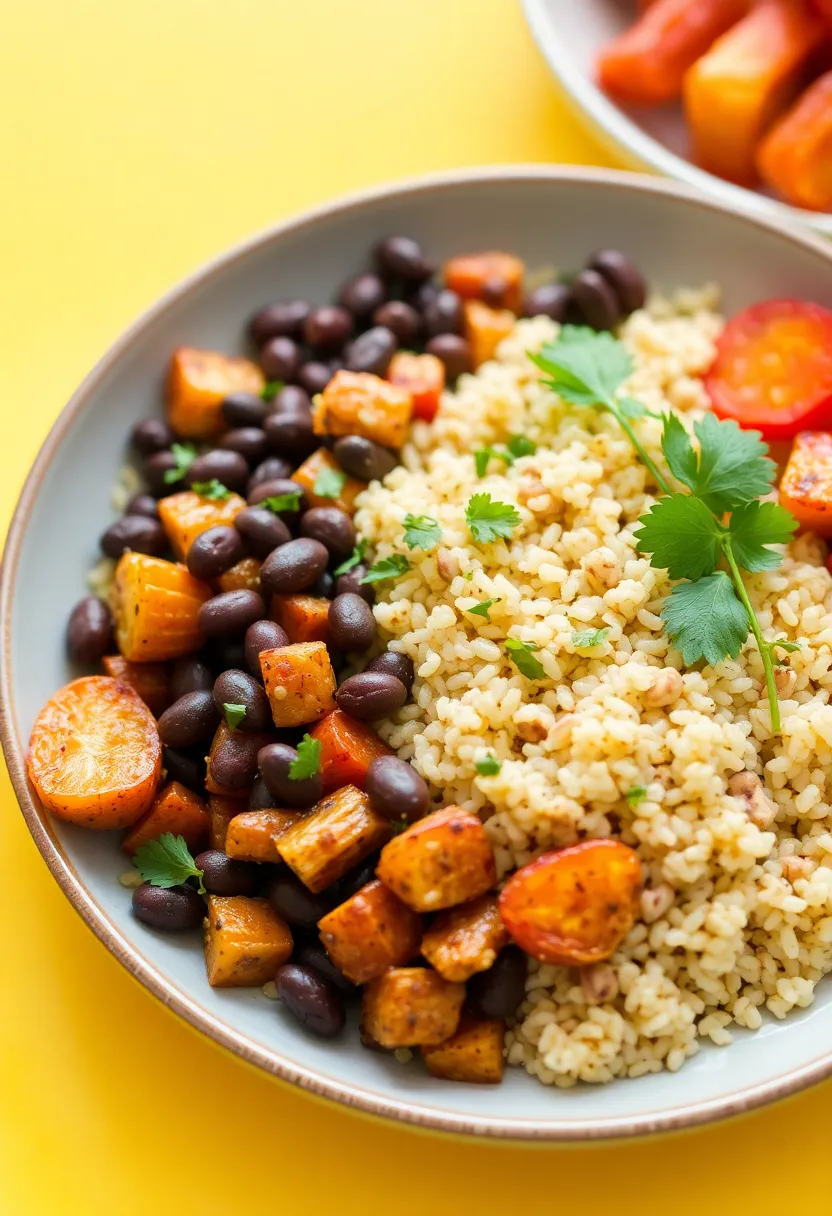
Incorporating more plant-based meals into your diet can provide numerous health benefits.
Fruits, vegetables, legumes, and whole grains are rich in nutrients while being lower in calories.
Try to designate one day a week as ‘Meatless Monday’ or experiment with plant-based recipes that showcase the variety and flavor of these foods.
This not only diversifies your diet but can also lead to weight loss and improved heart health.
9. Get Creative with Healthy Snacks
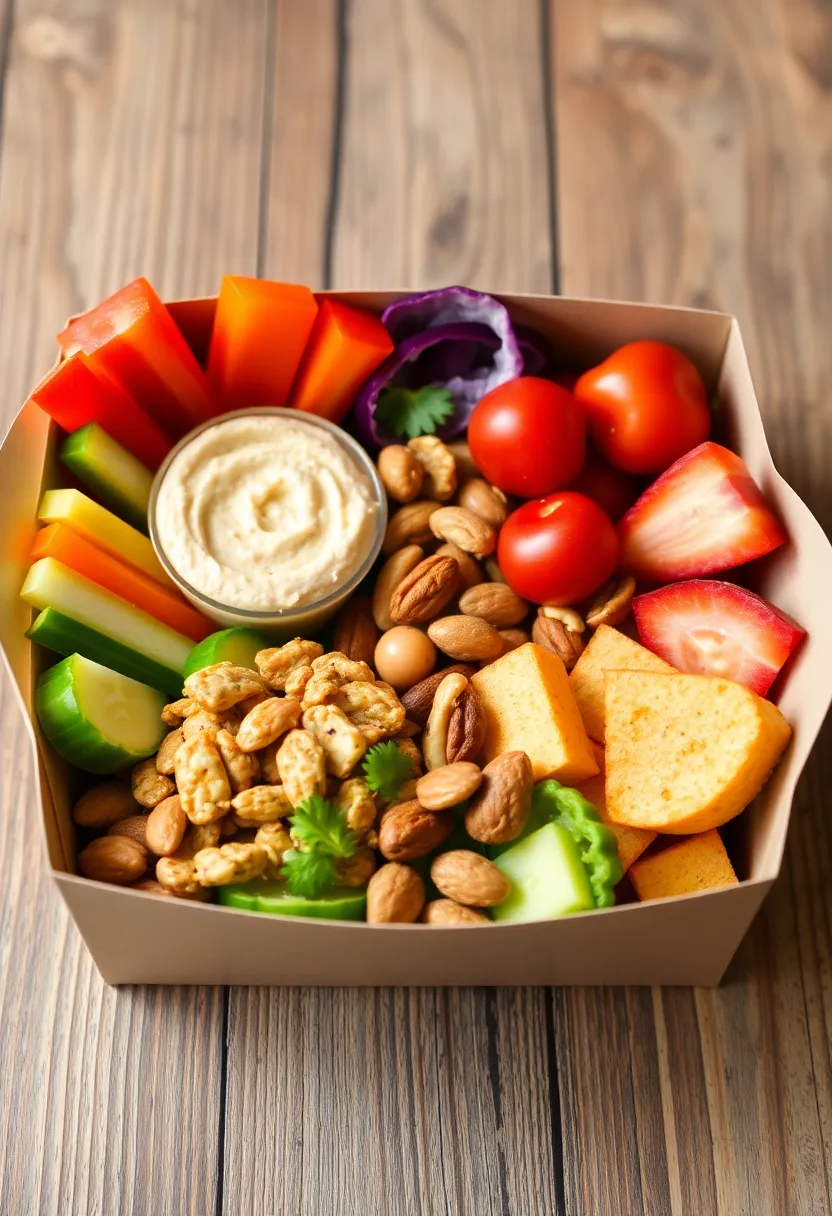
Snacking can be a healthy part of your diet if you choose wisely.
Opt for nutrient-dense snacks like nuts, yogurt, hummus with veggies, or fruit instead of processed options.
Preparing your snacks in advance can make it easier to grab something healthy on the go.
Try creating snack boxes filled with a variety of nutritious items for a satisfying and energy-boosting option.
10. Focus on Fiber

Fiber plays a crucial role in digestive health and can help keep you feeling full longer.
Aim to include plenty of fiber-rich foods in your diet, such as whole grains, beans, fruits, and vegetables.
These foods not only support your digestion but also provide vital nutrients that contribute to overall well-being.
Consider adding chia seeds to smoothies or oatmeal for an extra fiber boost.
11. Read Nutrition Labels

Reading nutrition labels can empower you to make informed food choices.
Look for key information such as serving size, calories, and nutrient content to help you understand what you’re consuming.
Pay special attention to added sugars and unhealthy fats.
This knowledge will allow you to select healthier options and better manage your dietary intake.
12. Don’t Fear Healthy Fats
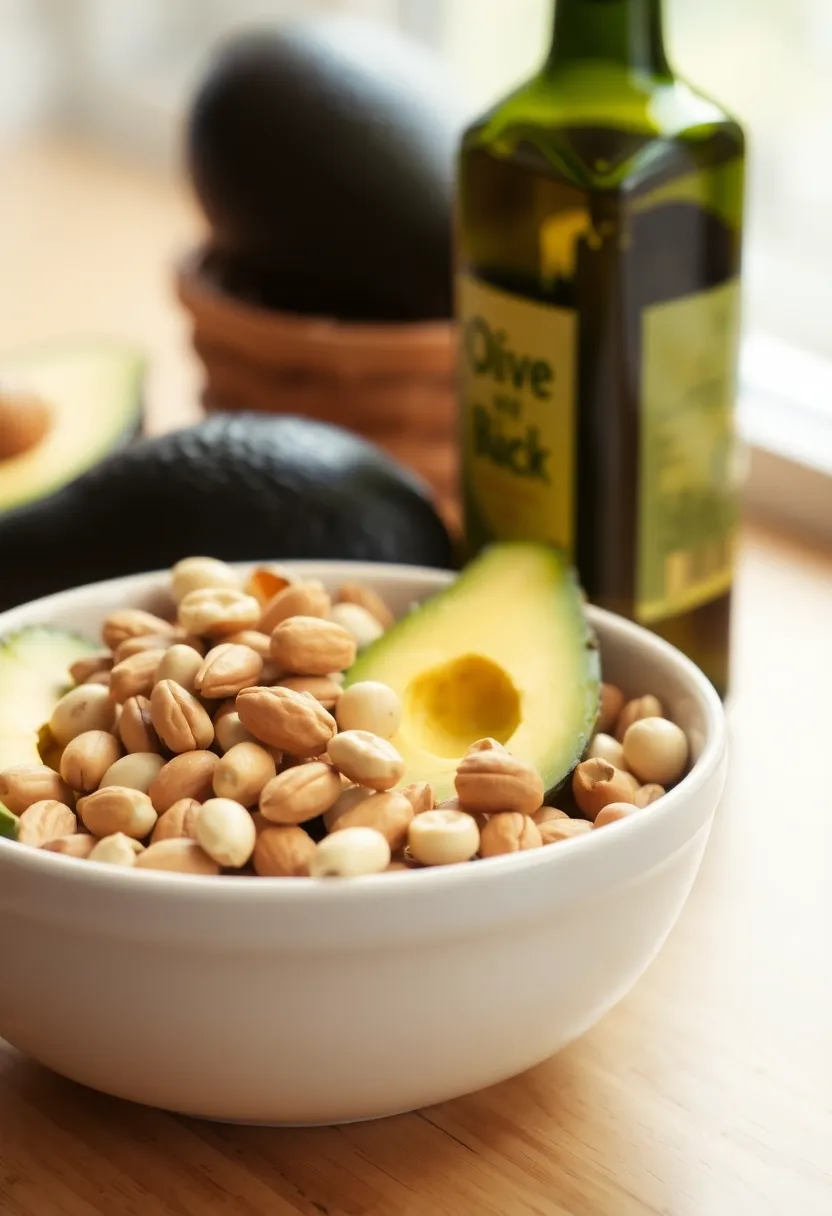
Healthy fats are essential for overall health and should be included in your diet.
Foods like avocados, nuts, seeds, and olive oil provide important nutrients and can help keep you satisfied.
Incorporating these fats into your meals can enhance flavor while supporting heart health.
Remember, moderation is key; focus on quality sources of fat for the best results.
13. Enjoy Treats in Moderation

It’s important to enjoy your favorite treats without guilt.
Incorporating occasional indulgences into a balanced diet can help prevent feelings of deprivation.
Choose moderation over restriction—allow yourself to enjoy dessert or a favorite snack but be mindful of portion sizes.
This balanced approach can lead to a healthier mindset towards food.
14. Seek Professional Guidance

If you’re serious about improving your nutrition, consider consulting with a registered dietitian or nutritionist.
These professionals can provide personalized advice tailored to your needs and goals.
They can also help you navigate dietary restrictions, manage health conditions, and create meal plans that work for you.
Investing in your health by seeking professional guidance can make a significant difference in your journey.
Conclusion

Embarking on your health and fitness journey can be transformative with the right nutrition strategies.
By implementing these 14 essential tips, you’ll cultivate a more positive relationship with food and fuel your body effectively.
Remember, it’s about progress, not perfection—embrace each step on your journey towards better health.

